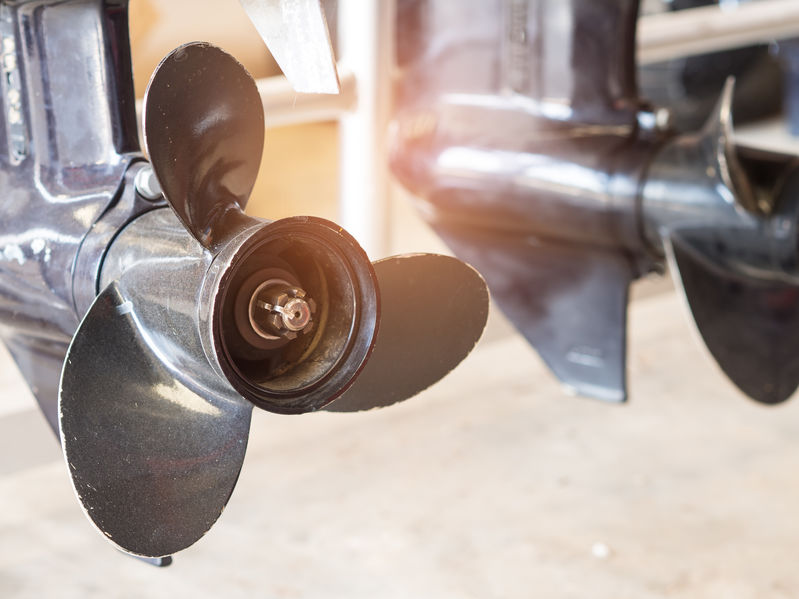New Federal Law Requires Engine Cut-Off Switches
June 23, 2021 | Category: Boating Accidents | Share2020 data revealed there were more boats on Florida’s waters which led to more accidents. The Florida Fish and Wildlife Conservation Commission (FWC) reported in its 2020 Boating Accident Statistical Report that Florida boaters "…must do a much better job of keeping safe if they plan to return to the dock, marina or launch ramp in one piece.”
 Many accidents leading to injuries and deaths can be avoided when boats have engine cut-off switches (ECOS). On April 1, 2021, the National Defense Authorization Act of 2021 went into effect. The law requires boat operators of recreational vessels less than 26 feet long with an engine capable of 115 pounds of static thrust (3hp) or more to use ECOS devices. ECOS devices are designed to prevent a boat-strike injury if an operator or passenger is accidentally ejected overboard while underway. (Formerly referred to as, “kill switches,” the term engine cut-off switch, or ECOS, is the preferred nomenclature, whether referring to engine-cut-off switches operated by a physical lanyard or any of several electronic solutions.)
Many accidents leading to injuries and deaths can be avoided when boats have engine cut-off switches (ECOS). On April 1, 2021, the National Defense Authorization Act of 2021 went into effect. The law requires boat operators of recreational vessels less than 26 feet long with an engine capable of 115 pounds of static thrust (3hp) or more to use ECOS devices. ECOS devices are designed to prevent a boat-strike injury if an operator or passenger is accidentally ejected overboard while underway. (Formerly referred to as, “kill switches,” the term engine cut-off switch, or ECOS, is the preferred nomenclature, whether referring to engine-cut-off switches operated by a physical lanyard or any of several electronic solutions.)
Engine cut-off devices can be located at the helm of the boat, on the tiller, or body of an outboard engine. Typically, an ECOS device is connected to a boat operator with a lanyard. However, wireless devices with an electronic “fob” can turn off the engine when an operator is submerged in water. The U.S. Coast Guard reports too many boat captains leave the lanyard to the switch dangling uselessly unattached. This makes them virtually ineffective in an emergency.
The U.S. Coast Guard says ECOS devices are important because “Boats can make sudden and forceful turns that create enough torque to eject an operator from the helm area or completely out of the boat. If thrown out of the boat, there is always the danger of a spinning propeller, especially since an unmanned boat can often start traveling in circles at the point where the ejection took place. Wearing your Engine Cut-Off Switch Link immediately stops the engine and allows the operator to regain control of the boat.”
BoatU.S. Manager of Government Affairs David Kennedy said, “BoatU.S. supports the responsible use of cut-off devices and wants to get the word out to boaters to be aware of this new requirement so they may prepare. We believe the new requirement allows recreational boaters to operate their vessels in a practical manner while increasing boating safety.” Mr. Kennedy suggests boat operators double-check to see that their engine cut-off switch is working and begin the season by getting into a good habit of wearing it.
“Should you or a loved one be injured in a boating accident, please contact our Naples boating accident legal team after seeking medical attention. We represent people involved in numerous types of personal injury and wrongful death accidents throughout the state of Florida. All of our clients have unique personal injury cases. Our firm provides personal contact and communication along with aggressive representation. We are available 24/7, and there are no costs or attorney fees until we receive a monetary recovery for you,” said Naples Boating Accident Attorney Randall Spivey of Spivey Law Firm, Personal Injury Attorneys, P.A.
Naples Boating Accident Attorney Randall L. Spivey is a Board Certified Trial Attorney – the highest recognition for competence bestowed by the Florida Bar and a distinction earned by just one (1%) percent of Florida attorneys. He has handled over 2,000 personal injury and wrongful death cases throughout Florida. For a free and confidential consultation to discuss your legal rights, contact the Spivey Law Firm, Personal Injury Attorneys, P.A., in Lee County at 239.337.7483 or toll-free at 1.888.477.4839, or by email to Randall@SpiveyLaw.com. Visit SpiveyLaw.com for more information. You can contact Spivey Law Firm, Personal Injury Attorneys, P.A.in Charlotte County at 941.764.7748 and in Collier County at 239.793.7748.

